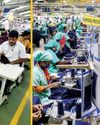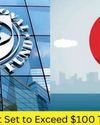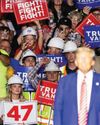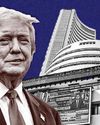After India’s independence in 1947, there were some major initiatives in favour of the Scheduled Tribes (STs), Scheduled Castes (SCs) that were aimed at their social uplift.

A common form of caste discrimination in India was the practice of untouchability. The SCs were the primary targets of the practice, which was outlawed by the new Constitution of India. In his book, Annihilation of Caste, B.R. Ambedkar criticised the Hindu religion, its caste system and its religious texts. He argued that inter-caste marriage is not sufficient to annihilate the caste system but “the real method of breaking up the caste system was… to destroy the religious notions upon which caste is founded.”
Reservation in Indian education system
In 1954, the Ministry of Education suggested that 20% of the seats should be reserved for the SCs and STs in educational institutions with a provision to relax minimum qualifying marks for admission by 5% wherever required. In India, reservation is allotted to the ST, SC and OBC candidates in all the prestigious institutions across the country. This reservation policy has been debated over in recent times. The top educational institutions in India like the IITs, AIIMS and IIMs are highly admired. The decision of the government to execute the policy of reservation in central institutions is because of the inequality in terms of lack of access to quality education for students from these backward categories. The reservation policy is executed as to balance the inequalities faced by the SC, ST, and OBC communities.
This story is from the September 1 - 15, 2018 edition of BUSINESS ECONOMICS.
Start your 7-day Magzter GOLD free trial to access thousands of curated premium stories, and 9,000+ magazines and newspapers.
Already a subscriber ? Sign In
This story is from the September 1 - 15, 2018 edition of BUSINESS ECONOMICS.
Start your 7-day Magzter GOLD free trial to access thousands of curated premium stories, and 9,000+ magazines and newspapers.
Already a subscriber? Sign In

Bank of Baroda, Kolkata Zone organised Mega Kisan Melas in West Bengal
Bank of Baroda (BOB) organised Mega Kisan Mela at Konkalitala in Birbhum District of West Bengal on November 18, 2024 as a part of the 7th Edition of the Baroda Kisan Pakhwada (BKP).

Time-Bound Disposal of Cases to Expedite the Delivery of Justice and affordabe by all in India
The delay in the disposal of cases in Indian courts remains a significant hurdle to the nation's progress.

Dev Deepawali: A grand celebration of light, spirituality, and culture in Varanasi
The holy city of Varanasi, often regarded as India's spiritual and cultural heart, came alive with the splendor of Dev Deepawali on the sacred day of Kartik Purnima.

The life of Job 'Ye judge not the judgment of God' - Jesus Christ
The Holy Bible reveals through the life of Job how the Lord tests the righteous and that faith helps one to overcome life's adversities.

India has the highest potential for the garment industry, only a conducive government policy is required.
India's textile industry is poised for remarkable growth, with expectations to double its contribution to the GDP within the next six to seven years.

Global Public Debt may be worse than it appears, warns IMF
Global Public Debt Set to Exceed $100 Trillion, Warns IMF

The economic consequences of Trump's Presidency: A global perspective
One of the key economic factors contributing to the Democrats' loss in the US elections was the significant rise in inflation, which was initially triggered by the COVID-19 pandemic and exacerbated by the Russia-Ukraine war.

Challenges and Successes in West Bengal's Education Sector: A Comprehensive Overview
The education system in West Bengal, particularly in districts, villages, slums, and government institutions, reflects a blend of progress and ongoing challenges.

What India can expect from Trump's return
I may be too early to predict how Donald Trump's second term as president will impact the global oil market.

Stocks Surge Following Donald Trump's Election as 47th President of the USA
Stocks soared following the election of Donald Trump as the 47th President of the United States. Investors anticipated that the Information Technology (IT) sector would benefit from lower corporate taxes under the Republican regime, with IT stocks leading the rally.